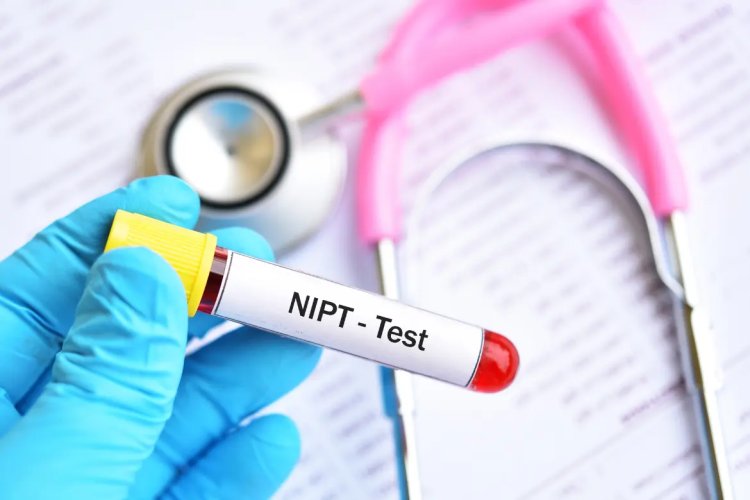Noninvasive Parental DNA Testing: Safe and Accurate Results
Non-invasive paternity DNA testing, as the name suggests, is non-invasive. The mother’s blood is collected through a syringe. However, the other paternity tests are not simple.

Determining paternity is important for the legal rights of the child. Not only this, but it is important in the issues of inheritance and property. One of the most well-known methods of determining paternity is the post-natal paternity DNA test. However, in some cases, such as pregnancy, as a result of rape often raises concerns about the alleged father of the child. Due to legal matters, it is not possible to wait until the birth of the child. In that scenario, noninvasive parental DNA testing plays an integral role. This paternity testing is the result of the advancement in the DNA technology. In this post, we will explore noninvasive parental testing and its accuracy.
What is Noninvasive Parental DNA Testing?
Another name for noninvasive parental DNA testing is NIPP testing. This test helps determine the paternity during pregnancy as soon as the 8th or 9th week. With this test, you do not have to wait for the delivery. This allows you to make well-informed decisions concerning yourself and the child. The process is painless and non-invasive, as the name suggests. NIPP testing involves the collection of fetal DNA through the mother’s blood. The separation of the fetal DNA from the blood requires advanced DNA technology. Therefore, this test is not possible to conduct in the case of twins because there is no such DNA technology to separate two different DNA from the blood.
What is the Procedure of Noninvasive Parental DNA Testing?
The procedure of NIPP paternity DNA testing is easy. Unlike other prenatal paternity tests, it does not have a risky and detailed procedure.
-
The first step is the collection of a DNA sample of the alleged father through the cheek swab method. A child’s DNA is collected through the mother’s blood.
-
The sample goes to the lab for the extraction of DNA from a biological sample, and this helps in the creation of DNA profiles that help find the similarity between the two.
-
It does not involve taking any particular medicine or taking fluid, which is risky for the mother and the fetus.
What are the Benefits of NIPP Testing?
The benefits of noninvasive parental DNA testing include the following:
-
There is absolutely no risk of miscarriage in this testing as it does not involve taking amniotic fluid.
-
The test results are highly reliable. The accuracy rate is about 99%.
-
The test can be performed as early as during the 7th to 10th week of pregnancy.
-
The sample collection process is extremely simple and does not take much time.
Is there any Difference Between Noninvasive Parental DNA Testing and Paternity DNA Testing?
The answer is yes; there exists a huge difference between NIPP and other prenatal paternity tests. Non-invasive paternity DNA testing, as the name suggests, is non-invasive. The mother’s blood is collected through a syringe. However, the other paternity tests are not simple. One test is amniocentesis, which involves taking the amniotic fluid from the uterus through the abdomen. This testing is risky and carries a huge risk of miscarriage.
Why Should You Consider Noninvasive Parental DNA Testing?
You must go for this testing for the following reasons:
-
You must look for NIPP testing if there is any doubt concerning paternity or if there is a legal paternity issue.
-
Sometimes, it becomes important to offer an evidence of the paternity in the case of rape or any other criminal investigation.
-
This test is a good option for those who do not only want to determine paternity but also to assess the risk of genetic conditions.
Are there any Legal Considerations for the NIPP Test in Texas?
Every state has its laws and regulations. If you are considering the NIPP test in Texas, the primary legal is that the court may order a paternity test over the dispute of paternity or divorce. In that regard, both the mother and the father have to obey the rules of the court. In addition, some key points that you must keep in your mind include the following:
-
When the court orders a paternity test, you have to go to the court-selected lab for the sample. This is to ensure the accuracy and reliability of results.
-
The court directly receives the results, and you do not get to see the results before the verdict.
Conclusion
Noninvasive parental DNA testing is one of the most important tests to determine paternity during pregnancy. With this test, the long wait period is over. Thus, it offers peace of mind to parents and allows them to make well-informed decisions. If you seek a paternity test, then you need to find a reliable DNA testing lab. Choice DNA testing lab is one of the good options in Texas for all kinds of paternity testing. For more information, you may visit the website and book an appointment.
What's Your Reaction?
















.jpg)


